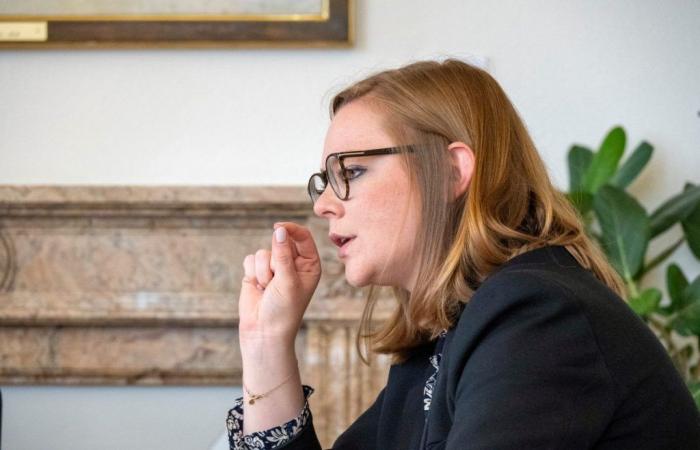– Vaud renounces tax solidarity between ex-spouses
State Councilor Valérie Dittli intends to put an end to this criticized cantonal practice in 2026, which penalizes the wife in more than 99% of cases.
Published today at 10:40 a.m.
Vaud Finance Minister Valérie Dittli had promised that she would put an end to this fiscal particularism.
Patrick Martin
Subscribe now and enjoy the audio playback feature.
BotTalk
Vaud Finance Minister Valérie Dittli is moving from words to action: she is proposing the repeal of tax solidarity between ex-spouses. The Council of State announced on Thursday that it will submit to the Grand Council an amendment to the law on cantonal direct taxes (LI) to end this practice, which many consider archaicIt is still only in force in the cantons of Vaud, Neuchâtel and Appenzell. The Confederation abandoned it twenty years ago.
Tax solidarity between ex-spouses is thus reflected in reality: even if the tax debts were distributed fairly by the authorities between the two spouses at the time of their separation, it is enough for one not to pay his share for the Vaud tax authorities to prosecute the other. In 99.4% of cases, it is the ex-wife who pays the price for this manipulation. This is what the figures have revealed provided in February by the State, at the insistent request of the Association of Single-Parent and Blended Families and the Association for Women’s Rights. The two allies had to activate the information law to obtain this data, covering the year 2019 only.
Change expected and requested
Subject to the approval of the Grand Council, which should not be a problem. since the deputies are demanding this changethe law would see this clarification added: “When the spouses do not live in a common household, joint and several liability ceases for unpaid tax amounts resulting from joint taxation.” In other words, each of the separated spouses will only be liable for their personal share of the tax balance dating from their common life and not settled.
This new regime will not, however, be implemented with the snap of a finger. If everything goes as planned, the reform will come into force on 1 January 2026. “This legislative amendment also requires an adaptation of the tax information system,” recalls the Council of State. Indeed, the tax return and its electronic processing have been developed according to the principle of taxation of the joint household. The change of model involves major work, planned and financed in the first phase of the Metamorphosis 2030 project (editor’s note: the IT modernization of the General Directorate of Taxation).» This step was voted on by the Grand Council last March.
“Vaud politics”
Do you like municipal and cantonal politics? “24hours” offers you a weekly selection of news from our authorities, from fund-raising files to behind-the-scenes anecdotes.
Other newsletters
To log in
Found an error? Please report it to us.
8 comments






